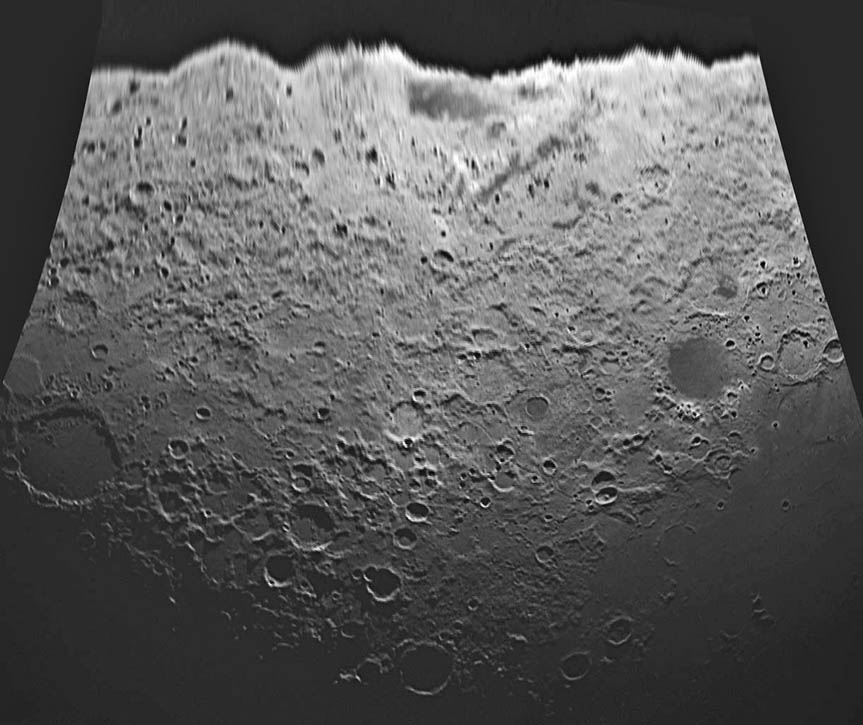June 30, 2009
Flattening Out the Sphere

image by Vincent Jacques, Breil-sur-Roya, France
Our view of the Moon is strongly tempered by where on its surface we look. For most locations we can easily understand how the geometry has been a little foreshortened, but near the limb the distortions are so great that interpretation becomes very difficult. Back in the late 1920s F. Wright projected a telescopic image of the Moon on a 15" sphere coated with photographic emulsion, creating a Wright Globe that canceled foreshortening, but no scientific discoveries resulted that I am aware of (but wouldn't such a globe make a wonderful LPOD?). In 1962 Firsoff published an atlas that included photos taken of images projected onto a sphere, but it was soon eclipsed by the similarly made Rectified Lunar Atlas of Kuiper et al. And then came Lunar Orbiter and the limb was revealed from overhead and all limb maps had to be corrected. Amateurs now can use software to rotate a lunar image to an overhead view, as Vincent has done here. Even now such terrestrial images, looked at in this corrected view can make us better aware of lunar geology. For example, notice linear edges of Orientale Basin ejecta on the far left near Wargentin and Schickard - such alignments aren't visible around other parts of the basin. There appears to be less ejecta just east of the basin rim (in the middle of the image), as indicated by the visibility of large craters. And if you can find the slightly sinuous Sirsalis Rille, notice that its orientation seems to have no relation to Orientale, instead it is about radial to the putative Gargantual Basin.
Chuck Wood
Technical Details
June 19, 2009 in daylight (~08:00 UT). 300/1200mm reflector + IR 807 + DMK 21 camera. 3 image mosaic corrected for a 3D perspective.
Related Links
Rükl plates 39 & 51
Vincent's website including a page with links to the original image and a labeled version.
Yesterday's LPOD: Golden Copernicus
Tomorrow's LPOD: A Giant Messier
COMMENTS?
Register, Log in, and join in the comments.



